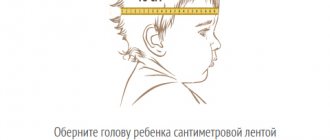One way or another, obscene language is present in the life of every modern person - both adults and children. If we do not use foul language ourselves, then we hear obscene words from someone else in everyday life or on TV, or read them in newspapers, magazines or books. Therefore, unfortunately, it is not surprising that one day we may hear a swear word or even a whole swear sentence from our child. And if we are normal parents, then, most likely, in this case we will experience a whole range of all kinds of feelings - from surprise to a state of shock.
On the one hand, this is a completely normal reaction of any adequate parent. On the other hand, such a reaction is of little use. Most likely, this will not stop our child from using obscene language. Therefore, having heard a child swear, it is extremely important to think about finding answers to two questions: why does he swear and what should be done to wean him from this harmful habit?
Reasons for children using obscene language
There are quite a few reasons why swear words and expressions may appear in a child’s speech.
Imitation
Children are little imitators. At first, the objects to be copied are mom and dad, then they are joined by peers on the playground, friends from kindergarten, classmates, favorite cartoon characters, actors, and musical performers. Naturally, if someone from the child’s close circle periodically uses obscene words and expressions, the child will quickly remember this.
The whole secret is that when people swear, they usually show strong emotions (appropriate tone, facial expression). Children remember such things very well.
If mom and dad use swear words at home, then the baby will begin to repeat them with a one hundred percent guarantee. And we are talking not only about dysfunctional families, but also about quite intelligent ones. After all, even a well-mannered person can use words to throw out negative emotions if, for example, he doused himself with boiling water, dropped a heavy object on his leg, etc.
Even cultured parents can swear in their hearts in unforeseen situations - the child absorbs it all like a sponge
Verbal self-defense
A child can show aggression at different ages. If a child is afraid to physically display aggressive behavior (adults punish for hitting, pinching, biting, etc.), then speech comes to the fore as a form of expressing emotions and self-defense.
Sometimes a child’s swear words become a way of verbal self-defense, a manifestation of aggression
Desire to attract attention
Perhaps, by using obscene words, the child is trying to attract the attention of adults who are too busy with their own problems.
When everything is going well, parents may, due to their workload, not pay attention to their children.
But when a child does something extraordinary, we immediately get involved - we drop everything we’re doing and start scolding, talking, discussing some topics with the child, that is, in fact, we get involved in his life. Sometimes it happens that it is precisely this inclusion of ours that a child, especially a teenager, lacks, and he attracts attention so much.
Sofya Shokotko, existential psychologist
https://changeonelife.ru/2019/04/02/kak-otuchit-detej-rugat-sya-matom/
Self-affirmation
This motive is characteristic, as a rule, of adolescence, when it becomes very important for a child to gain recognition and approval from authoritative peers. In this way, a boy or girl adapts to the society in which he wants to be, shows his maturity (for the same reason, many teenagers begin to smoke and try alcoholic beverages). Moreover, at home, in the presence of his parents, the student can control himself, obscene words will only occasionally “break through”, and in the company he will already be able to swear freely (after all, he does not want to be a “black sheep”).
For teenagers, swearing makes them “theirs.” Anyone who uses “forbidden” words becomes an “adult” and not a “mama’s boy” in whom there is no trust. A parental ban on swearing makes swearing especially attractive.
Vyacheslav Amanatsky, psychologist
https://news.tut.by/society/580626.html
Teenagers who use swear words seem more mature, rather than like mama's boys and daughters.
Video: why children swear (survey of passers-by on the street, including the children themselves)
Parents' mistakes
You cannot instill a love of competent speech through reproaches and scandals. Very often, adults make mistakes that only make the problem worse. A child swears - what to do with such a child, how to behave correctly with a teenager will help simple tips.
- Never use physical force to stop a fidget from swearing. Hitting a little man on the lips, washing his tongue with soap - all this will only cause mental trauma to the foolish child, and will also turn the restless child against his parents. The baby often simply does not understand the meaning of obscene expressions. This especially applies to preschool children.
- You shouldn’t prohibit swearing if you yourself constantly use profanity. If swearing is prohibited in the family, then dad and mom should also stop swearing. Personal example is the best influence on a child.
- A directive ban on swearing will not help achieve success. The expression “I said it’s impossible, that means it’s impossible” is not the best argument for a little fidget. Explain to the idiot why you can’t swear. Give reasons for the ban.
- You shouldn’t organize an entertaining show, invite your neighbors or friends to listen to the fool repeat a swear word. Your fun and good mood will serve as a signal to the little one. The baby will try to earn the love of his parents, to bring joy - new swear words will not keep you waiting. What starts out as a joke can quickly become a habit that is difficult to break.
- Do not scold a fidget for swearing in the presence of other people. The desire to shame a child can result in severe psychological problems.
- Do not arrange showdowns, interrogations with bias: admit who you heard from, who taught you. Your aggressiveness will cause the little one's distrust. You won’t know from whom the child heard the swear words. It is quite possible that the foolish person himself does not remember where he heard the obscene word.
- Do not prohibit walks as a form of punishment. This will only make your child’s physical health worse.
- When you hear a child swearing, you should not focus on the first rude words. It is quite possible that the foolish person simply repeated an expression he heard, which will quickly be forgotten.
You shouldn’t throw tantrums or try to portray a “world tragedy” because the baby started swearing. Adults need to calmly, without the presence of the child, discuss the mistakes made in raising the baby. Develop a unified position, the purpose of which is to wean the foolish one from swearing.
Features of swearing at different ages
Children of different age groups have their own priority reasons for using profanity:
- 2–3 years. The baby intensively collects information about the world around him and expands his vocabulary. The baby willingly repeats all the words he hears. He doesn’t even understand the meaning of swear words, but he likes the expression with which adults pronounce them.
- 4–5 years. The child already understands a lot, in particular, what is good and what is bad. Often a preschooler swears for a specific purpose (to express protest when his wishes are not fulfilled, whims, to attract attention, especially if adults begin to be touched).
At 4–5 years old, the child swears quite consciously and understands that he is saying bad words.
- 6–9 years old. Older preschoolers and younger schoolchildren can use swearing to express their independence and protest against parental prohibitions.
Children aged 6–9 years often use obscene language to show adults their independence and to protest against parental control.
- 10–14 years old. The main motive for using obscene words is self-affirmation in the company of peers. Some teenagers want to appear deliberately rude. (both boys and girls) - they think that this way they will look cooler.
- After the age of 14, most teenagers' interest in swearing begins to wane. Such words remain only expressors of emotions; they are inserted when telling jokes (otherwise they will not be so expressive). Profanity no longer brings the joy it once did (there is no novelty); the ability to swear loudly is no longer enough for respect in a team. A teenager who constantly swears is often already perceived negatively by his peers.
Combating profanity in children's speech
When swear words have already come into use, it is necessary to combat this by introducing certain rules. It is important that prohibitions regarding certain expressions apply to all family members: if a rule is adopted not to use swear words at home, then parents should also adhere to this. Naturally, anyone can make a mistake, therefore, when an indecent word was nevertheless uttered, it is necessary to apologize, explain why it was said that way, and find a cultural synonym.
Discuss the meaning of swear words, look for replacements for them. Notice situations when your child formulates his thoughts beautifully and accurately, and praise him for it. Encourage vocabulary development and teach how to put a nasty person in his place using literary figures of speech.
If you need advice from a child psychologist, call and make an appointment: (812) 642-47-02.
Video: psychologist Yulia Kukoleva offers her technique for weaning off swearing
If the child is between 2 and 4 years old, then you can use a trick - find a similar word, but without a negative connotation. Every time the baby swears, you need to point out that he is pronouncing this word incorrectly, but in fact you need to say something else (prompt a substitute word). At the same time, it is very important for an adult not to show his emotions, but, on the contrary, to pretend that he does not care. After 4 years, you can come up with stories that no one wants to be friends with children who fight.
This and other interesting and useful materials for parents are available on our melkie channel in Yandex Zen.
If a child swears, there is no need to make a tragedy out of it. First of all, you need to analyze your own vocabulary and remove obscene words from there. Otherwise, the problem is solved depending on the age of the son or daughter. If the child is very small, then his attention just needs to be switched to something else. At an older age, explanatory conversations without reading notations help. Particular sensitivity should be shown with a teenager. Some measures are simply unacceptable: reproaches, threats, physical punishment for swearing.
A child swears: what should I do?
But what should those whose children already swear do? There are some tips. First of all, don't panic. Swearing from a child’s mouth is not a reason for conflict, much less assault. What else should you not do?
What not to do
You should not shame a child if he swears, especially in public. This way you can achieve the opposite effect: emotional stress will increase, the child will withdraw into himself, begin to feel like an outcast and even begin to quietly hate you, but will not feel remorse for his words. Have no doubt, shaming your baby will not solve the problem of swearing.
Also, you should not “lump” all the offenses into a pile. In other words, if you decide to scold a child for swearing, talk only about this, without remembering his past mistakes - a broken chair or painted wallpaper.
Children should not be prohibited from swearing in the form of ultimatums, exerting pressure with their authority and threatening punishment. Don't say, "Don't swear because I said so." Instead, explain your position and conduct a conversation with the child in the format of a dialogue rather than a monologue.











